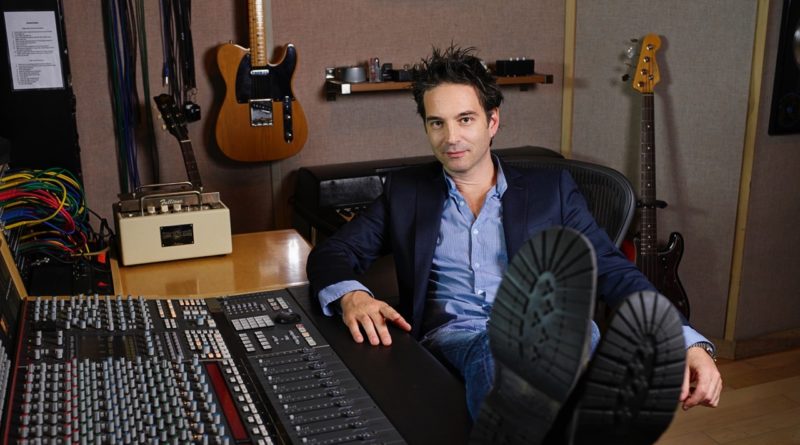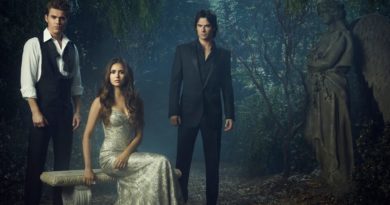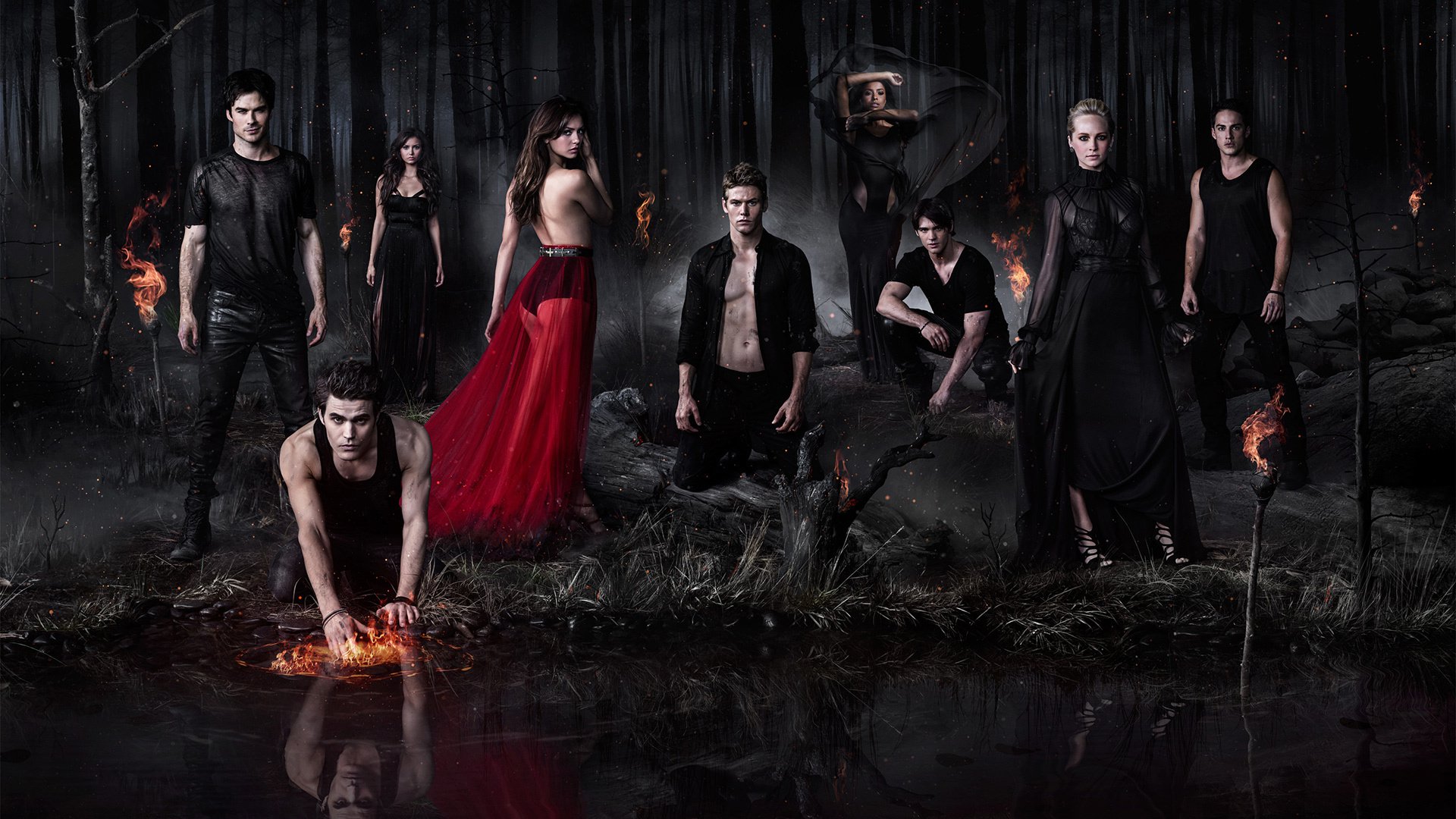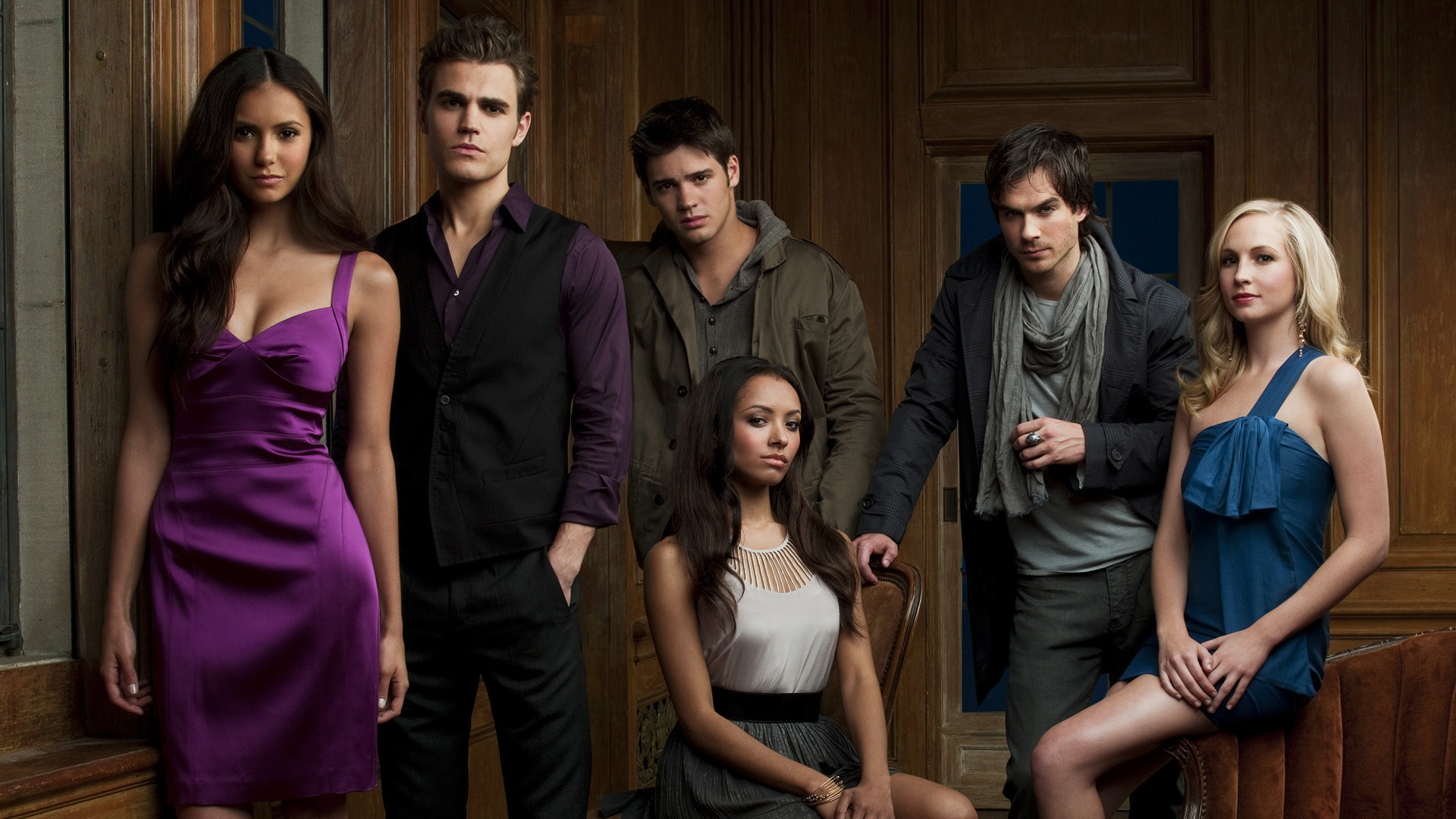Jeff Russo’s Score Invites Us Into the Delusion on Legion
Great news for fans of Legion: FX has renewed the Marvel mutant series for a third season to air next year. With just one final episode remaining this season, we spoke with Emmy-winning composer Jeff Russo (Fargo, Star Trek: Discovery, The Night Of) about his score for the critically acclaimed show.
In our chat below Jeff takes us into the delusion of Legion, giving us insight into his process for creating the music that helps keep viewers questioning reality. Plus we get some (spoiler-free!) hints about what we can expect to hear in the finale.
Tunefind: With Legion, you’re essentially having to score hallucinations. Can you talk about how you approach this kind of psychological role that the music is playing, and you’re moving viewers through reality versus what’s in David’s head?
Jeff Russo: You know, part of what we originally wanted to do with the show and the music was to invite the audience to join in the main character’s delusion. Part of that meant, why don’t we make sure that music never leads you to understand where you are? Because if the main character doesn’t know what’s going on – David doesn’t know what’s real and what’s not real – why not invite the audience to join in that? I never wanted to write music for the show that would have someone in the audience go, “Oh, I understand where I am right now.” If David didn’t know, we didn’t want the audience to know.

Seeing Things Hearing Things
by Jeff Russo
from Legion Soundtrack · Season 1 · Episode 6 · Chapter 6
Sydney rushes off after David continues to talk…
I also read a book by Oliver Sacks called Hallucinations, and there’s a whole portion of that dedicated to audio hallucinations, and what that might be like. I did a little bit of research to figure out how I could make score that had that same effect, and sort of sound a little like that. I spent a lot of time trying to figure that out, and sort of slip in and out of electronic, and organic, and how that might work for our characters. It posed a great challenge for me, but it was so much fun to do.
TF: You’re blending all these different sounds: psychedelic, electronic, orchestral tones – even crickets! Is that challenging to navigate, or is it just pure fun for you, to be able to play with all those sounds?
JR: It’s both. It really is both. It’s everything. You know the fact is, what I do is super fun all the time. So, how do I make even the biggest challenges fun? Sitting in front of my big synthesizer, figuring out how to make it sound like what I hear in my head, it is challenging, and also a lot of fun. It’s as lucky as one can get in terms of writing music, and being able to do it in a manner that is so intriguing.

Choir and Crickets
by Jeff Russo
from Legion Soundtrack · Season 1 · Episode 6 · Chapter 6
Lenny insists Sydney puts on headphones as part…
TF: Let’s talk about some specific cues, starting with a look back to some of your favorite cues from the first season, which really set the tone for the show.
JR: There are a number from season one that are really sort of pivotal for the show. One of my favorite pieces from season one was what Noah allowed me to do with Bolero in episode seven. He had said, “We’re doing this silent film part of episode seven.” I was like, “Okay, great,” and he said, “I love Bolero. What do you think we can do?” I said, “Well, what if we do a completely electronic version of it, in a very minor, weird way, that is totally odd, and make people feel it’s really dark and ominous?” You know, because it’s a very major piece of music. It has an almost happy feel to it.

Fauxlero (Bolero de Revel) [feat. Paco Rodrigo]
by Jeff Russo
from Legion Soundtrack · Season 1 · Episode 7 · Chapter 7
This song is played simultaneously with Bolero …
The one thing that people may not know about the Bolero is that’s it the same 16 bars over and over and over again. Ravel just kept repeating himself. I’ve heard a lot of people say it was because he was going mad. I thought that was interesting that Noah brought up Bolero, because it did tie into the schizophrenic aspect of the show.
Another of my favorite pieces of music that I got to do for that season was the harpsichord piece that that opened the entire last episode. There was this big harpsichord piece that I wrote for it, and it really set the mood for that last episode.

Harpsichord with Undercurrent
by Jeff Russo
from Legion Soundtrack · Season 1 · Episode 8 · Chapter 8
Opening scenes.
TF: And another interesting instrument choice, that sets a totally different tone.
JR: Yeah, exactly. Something completely out of the ordinary.
TF: You’ve mentioned that Legion is kind of its own sound, so very unlike any of your other projects. Can you talk a little bit about that unique sound, and how you switch gears and get into that Legion head space, when you have to work on the show?
JR: You know, it’s funny. It does have a completely different tone and different sound than anything else I’m working on – or have worked on, or will work on. The thing it does share with the other work that I do is I pull from the same place emotionally. The way I go about writing music is always from an emotional space. I like to score what the characters are feeling, not necessarily what the characters are doing. That is the through line for me in scoring various projects.

89 Days
by Jeff Russo
from Legion Soundtrack · Season 2 · Episode 7 · Chapter 15
Ptonomy connected into a data hub; Ptonomy look…
Legion is unique in that I don’t have really any boundaries at all in terms of what I can do, as long as I’m accomplishing the task at hand. There’s isn’t “Well don’t use that sound, or don’t do that. Keep it all orchestral, or keep it all electronic, or keep it all this type of space, don’t ever use a guitar, or don’t ever use a drum.” You know what I mean? I can pretty much do whatever I want, within the confines of trying to achieve a narrative goal. I don’t have a set palette to work from. That’s the thing that I think really sets it apart from a lot of the other projects I work on.
TF: This show loves to keep viewers unbalanced. You use music to do that quite a bit, pulling in new sounds, or something that’s a juxtaposition to the scene. Can you talk a little bit about that element of your score and how you play with pace, mood, instruments?
JR: I think one of the more effective things we do is we play against what you think would be right. We play against the scene. We play opposite of what you’re seeing, or we try to play around with the idea of being not on the nose at all.
We have a standing rule: never play music until you’ve earned the right to play music. Never play music until you’ve earned it emotionally. Whether that’s tension or release, or pace, or to slow it all down, we have to really get to the point where music is going to have an impact.
I think it’s why we use less music than you might see in other shows or movies. I think the music has a greater impact when we do that. Playing opposite what you see can be very effective in getting somebody’s attention. Music doesn’t necessarily always want to take the attention of the viewer, but we use music in a way that can pull someone’s attention away from something on the screen, or we might want to push somebody’s attention towards something else. We tend to do that a lot. I get to do that by using organic instruments and also using weird and crazy sounds that I build with synthesizers, or my own voice, or sitting around hitting a box with my hands and trying to make something sound odd.
TF: You’ve mentioned that the team approaches Legion like an eight hour movie: more of a bigger, longer, thematic piece. Can you talk about how that impacts your approach and your choices as a composer, and how you work together with Noah [Hawley, showrunner] and Maggie [Phillips, music supervisor], on the holistic sound of this eight hour film?
Jeff: From a score point of view, we definitely look at it like an eight hour long movie, so themes recur. For example, from season one, David’s theme, which permeates the entire season, has this off and on, it goes (Jeff sings and demonstrates the theme). I wrote that in different tempos, in different versions, it gets faster, it gets slower. That sort of permeates the entire series, because David is the show. I think that was a really big deal for me, in cracking the code of what I thought David’s theme should be.

David
by Jeff Russo
from Legion Soundtrack · Season 1 · Episode 5 · Chapter 5
Melanie leaves; Syd, Ptonomy and Rudy follow af…
At the beginning of season two of Legion I wrote a bunch of new themes. I wrote a future Syd theme. I wrote a theme for the Shadow King, in his body, Farouk. Farouk’s Shadow King theme is probably my favorite from this season. And I got to do something different and totally outside of what I did for season one, yet still in the same world as our score. I really enjoyed that.

Farouk / The Shadow King
by Jeff Russo
from Legion Soundtrack · Season 2 · Episode 2 · Chapter 10
Meeting with The Shadow King.
I also wrote some new themes for Vermillion, for Division three, and for the appearance of the Shadow King in his body, that we know from season one and I needed to create new sounds. So, when looking to themes from season one, they would have a refreshed sound.
The themes that did carry over were the themes between Syd and David and their relationship. The through line of the entire series is David and Syd, Syd and David, and how they’re working together, or not. Sometimes they are working against one another, or working in tandem with a different Syd.

David and Syd
by Jeff Russo
from Legion Soundtrack · Season 1 · Episode 5 · Chapter 5
David assures Syd they can touch in his illusio…
I’m able to utilize thematic elements to really bring people back to what we want them to see and feel, which is this relationship, or an interaction, or a particular situation, that has happened once before. We flash back to David as a youngster, or we flash back to things from season one and then how that relates to season two. I’m sure I’ll do the same thing going forward.
TF: You started to touch a bit on the mechanics of how you work. I’d love to dig into that a little bit more. Can you talk about your process: when you start writing, how much you’re doing in advance based on some guidance from Noah or maybe some script outlines, versus really specific to picture?
JR: I write all the themes prior to the show being shot, mainly. I get a first script, or a second script, and maybe even three scripts, and I start sketching out what I think the themes for these new characters, and new situations will be. Then there are other more specific things, like the dance battle from [season two] episode one, which I saw in the script and I was like, “Oh.”
By the way, I think there were maybe three lines describing the dance battle in the script. I called Noah, and we talked about how he thought it should sound and what he wanted it to do. I had my own ideas about what it would be like when Lenny was dancing, versus Oliver dancing, versus David dancing. He said, “Okay. So I’m thinking this kind of a thing, and that kind of a thing, we definitely have to do something for when we are going to cut back to Cary dancing.”

Dance Battle
by Jeff Russo
from Legion Soundtrack · Season 2 · Episode 1 · Chapter 9
Dance Battle scene.
I took all of that information, and I went into the studio and wrote that piece of music before they ever shot, because they needed that piece of music to choreograph to. I wrote it, then they choreographed to that piece of music, and then they shot it. When I saw the final version of the scene, I needed to do some minor editing to the piece, just to make it work to picture. If you get the soundtrack, what you might find is the soundtrack is slightly different than what was onscreen. There needed to be some editing in certain places to make it work to picture.
TF: That is a really interesting aspect of the score that some fans notice on Tunefind. They’ll say, “Hey, you’ve linked to that cue from the soundtrack, but it doesn’t sound quite the same.” Can you explain what’s happening there?
JR: Well, you know, things do have to change for certain scenes. Okay, so I can’t do this one thing here because it’s too long, so I have to pull that out. I like to put the longer versions on the soundtrack, so people can hear what my original intention was.
That’s basically how the whole thing works. I write a piece of music and I know that it’s going to be for this particular situation and then, when the picture comes in, I adjust, and then maybe rewrite based on that whole theme to picture. Sometimes things work, and “Oh, this piece of music will work really great right here.” Or, sometimes it doesn’t work at all, and I end up rewriting completely.
TF: Beyond the score you’ve written for the show, you’ve also worked with Noah Hawley on all the cover songs featured this season.
JR: Some of my favorite work this season has been the covers I’ve done for some of the episodes. Those took me back in my record-making roots, which is where I come from. Up until my transition into writing score for film and TV I’d been making songs with my band, Tonic. Doing these covers has been a fun left turn from creating the score for the show.
TF: And you’ve confirmed there are more covers coming up in the finale on June 12th, and that a covers album will be released soon. We’ll keep things here spoiler-free here…
More
〉More music by Jeff Russo
〉Songs and music featured in Legion
〉The Music of FX’s Legion: Q&A with Music Supervisor Maggie Phillips






Pingback:This Fortnight in Music Supervision and Sync (15/06/18) - Synchblog by Synchtank
Pingback:Tunefind's Top Blog Posts of 2018 - Tunefind